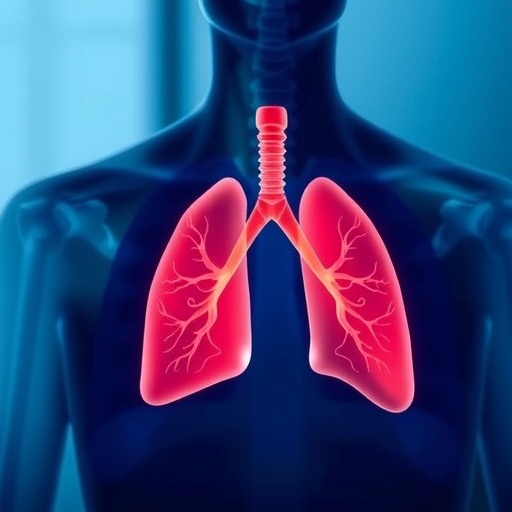In a groundbreaking survey unveiled at the International Association for the Study of Lung Cancer 2025 World Conference on Lung Cancer (WCLC), researchers from Lung Cancer Europe (LuCE) have illuminated substantial communication challenges that lung cancer patients and their caregivers face across Europe. The comprehensive study, encompassing 2,040 responses collected in twenty languages from thirty-four countries within the WHO European Region, reveals critical gaps in information dissemination, understanding, and patient involvement in therapeutic decision-making. These findings underscore a pressing need for healthcare systems to overhaul communication strategies to foster a more patient-centric approach in lung cancer care.
Lung cancer remains one of the most lethal malignancies globally, and effective communication is essential to enable patients to navigate this complex disease trajectory. Yet, the survey findings suggest that many patients are underserved by current systems, with significant proportions encountering barriers in accessing and comprehending vital medical information. This gap not only impedes timely diagnosis but also affects patients’ ability to engage meaningfully in treatment choices, thereby compromising outcomes and quality of life.
The study highlights that a majority of surveyed patients—65%—had delayed seeking medical advice, frequently attributing this hesitation to the misrecognition or underestimation of early symptoms. This delay in presentation poses a serious hurdle to improving prognosis, as lung cancer’s insidious onset often means symptoms are subtle, nonspecific, or dismissed. Moreover, the data reveal a concerning deficit of awareness around molecular diagnostics; 22% of respondents reported unfamiliarity with biomarkers that are increasingly crucial in tailoring targeted therapies.
Equally troubling is the revelation that nearly one-quarter of participants did not understand their prognosis, a fundamental aspect of care that influences treatment preferences and advance care planning. The study attributes this to deficiencies in how clinicians communicate complex prognostic information, leading to misinterpretations or emotional distress among patients and caregivers. These communication lapses extend to the informational content and delivery format, where 40% of respondents felt inadequately informed, and 29% struggled to fully comprehend the information they did receive.
Central to the research is the identification of pervasive barriers in information processing and clarity. Patients frequently reported challenges such as complex medical terminology, convoluted explanations, and insufficient customization of information to individual needs. Specifically, 39% cited difficulties in processing information, while 33% flagged a lack of clarity and another 33% noted excessive complexity, indicating that healthcare communication often fails to meet the cognitive and emotional needs of lung cancer patients.
In the realm of shared decision-making, a cornerstone of contemporary patient-centered care, the survey uncovers a striking disconnect. Only 56% of patients felt that their opinions were truly considered during treatment planning, an indicator that many care models still position patients as passive recipients rather than active partners. Similarly, just 60% agreed that their care plans aligned with their personal preferences, underscoring the urgent necessity for clinicians to elicit, respect, and integrate patient values and goals.
Debra Montague of LuCE, the presenting author of the study, emphasizes that the primary impediment to shared decision-making stems from the pervasive use of complex medical language, which 49% of respondents identified as the biggest obstacle. This linguistic gap not only frustrates patient understanding but also diminishes trust and engagement, thereby undermining clinical efficacy and satisfaction.
Another compelling insight from the survey pertains to patient perspectives on treatment objectives. Most respondents (approximately 64%) expressed an equal valuation of quality and length of life, reflecting nuanced and individualized priorities. Conversely, about one-third of patients prioritized quality over longevity, highlighting the imperative for personalized care discussions that recognize diverse patient values, treatment tolerance, and life circumstances.
These findings arrive at a critical juncture as lung cancer management increasingly leans toward precision medicine, involving complex biomarker-driven therapies and multidisciplinary care pathways. The survey underscores that no technological or therapeutic advancements can achieve their full potential without parallel improvements in communication frameworks that empower patients and caregivers.
LuCE advocates for a collaborative, cross-sectoral effort involving healthcare providers, policymakers, and advocacy groups to rectify these deficiencies. Strategies should focus on enhancing early diagnosis through better symptom awareness campaigns, simplifying medical language, adopting tailored educational tools, and institutionalizing shared decision-making models. This multi-pronged approach aims not only to elevate patient comprehension and autonomy but also to improve adherence, satisfaction, and health outcomes.
The importance of such reforms is further underscored by the evolving landscape of lung cancer treatment, which now features an expanding arsenal of systemic therapies, including targeted agents and immunotherapies that demand patients’ active collaboration. Integrating patients’ preferences, values, and informational needs into treatment paradigms is essential to optimize therapeutic success and maintain dignity and quality of life throughout the illness journey.
As Montague poignantly concludes, empowering patients through accessible, clear, and timely information is paramount. Healthcare providers must champion and operationalize shared decision-making to forge truly person-centered care, transforming lung cancer treatment from a clinician-driven process into a deeply collaborative partnership that honors the lived experiences and choices of patients.
The International Association for the Study of Lung Cancer continues to spearhead advancements in thoracic oncology globally, and the revelations from this survey at the WCLC serve as a clarion call to enhance communication and engagement beyond the scientific dimensions of cancer therapy. By foregrounding the human dimension of lung cancer care, this research offers a renewed roadmap toward compassionate, effective, and personalized medicine.
Subject of Research: Communication barriers affecting information access, understanding, and shared decision-making in lung cancer care among patients and caregivers in Europe.
Article Title: Communication Challenges and Their Impact on Patient-Centered Lung Cancer Care: Insights from a Pan-European Survey
News Publication Date: September 9, 2025
Web References:
- Lung Cancer Europe (LuCE): https://www.lungcancereurope.eu
- International Association for the Study of Lung Cancer (IASLC): www.iaslc.org
Keywords: Lung cancer, patient communication, shared decision-making, healthcare systems, biomarkers, prognosis understanding, patient engagement, personalized care, Europe, thoracic oncology




